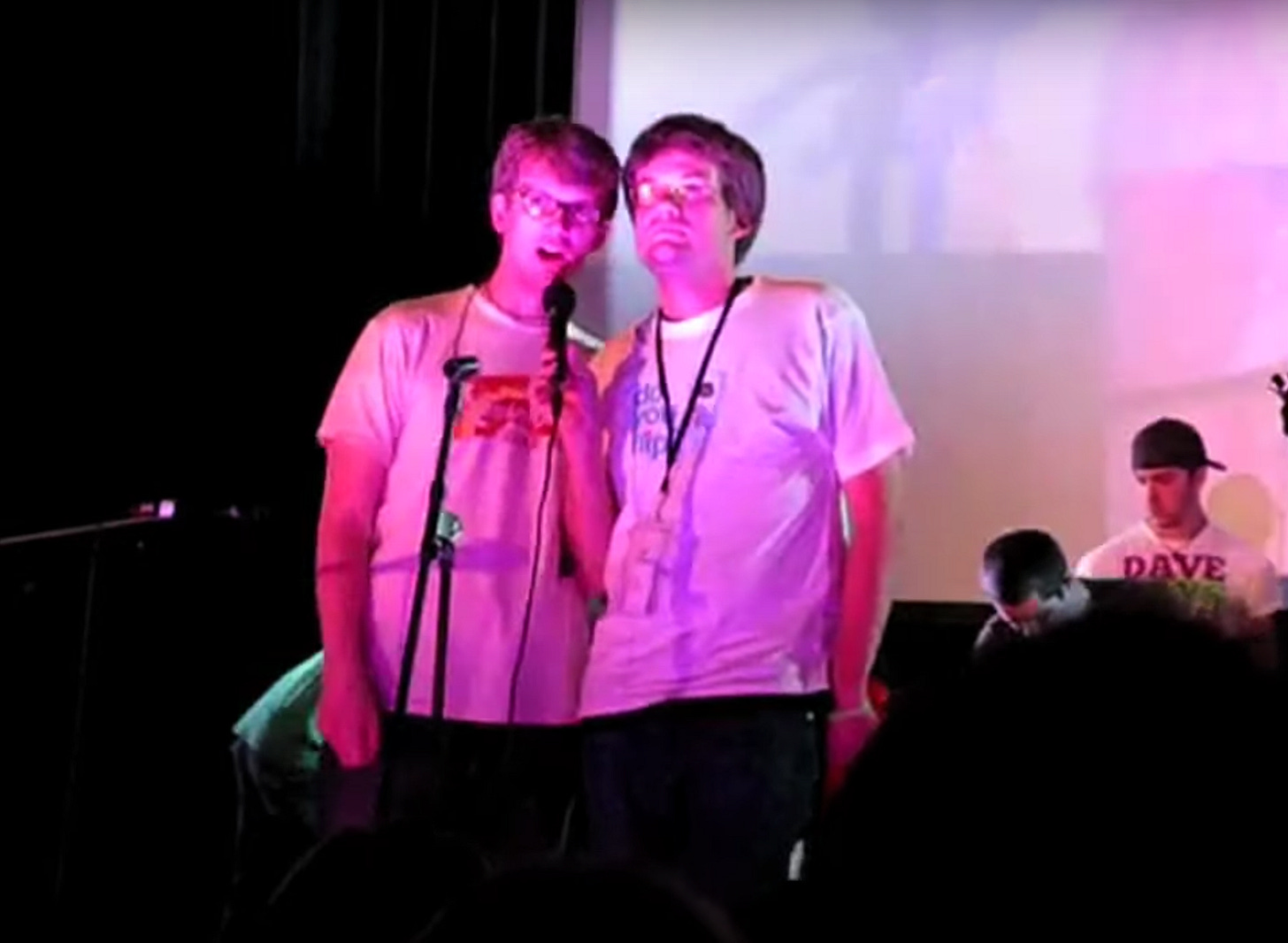What's lost as TikTok overtakes YouTube?
Remembering the first VidCon, and wanting to feel what it’s like to be other people.
Embedded is your essential guide to what’s good on the internet, written by Kate Lindsay and edited by Nick Catucci.
Old-man-yells-at-cloud.gif. —Kate

I wanted to be an internet culture writer in part because they didn't really exist when I was a teen, at the peak of my internet usage. All my vlog-watching, Tumblr-scrolling, and fanfiction-writing was done alone in my childhood bedroom. A lot of the work I do now is done in service of my teenage self, giving belated coverage to things that didn’t receive it the first time around. Which is why I spent my morning watching vlogs from VidCon 2010.
Yesterday, Variety broke the news that YouTube had lost top billing as VidCon’s title sponsor for 2021. Unsurprisingly, that honor now goes to TikTok. The short-form video app hit two billion downloads back in spring 2020. Trends on the app now dictate IRL music and culture. I know all this. I support all this. And yet, the headline was an unexpected gut-punch, for me and other creators.
I’ve seen a lot of internet chapters end over the years, and while I don’t think YouTube is going anywhere, seeing it lose its hold as the leading platform for online communities still feels like an end of an era—one that began on December 9, 2009.
“Online video is like a really huge deal,” Hank Green, creator of VidCon and one half of the Vlogbrothers channel with his brother John Green, said on that day, in a video titled “ANNOUNCING! VidCon: Online Video IRL.”
“A couple of months ago John and I decided that we were really interested in the possibility of [having] a real-life online video conference in order to get all the best online video creators in one place, and the communities that support those creators,” he continued, laying the groundwork for what would go on to be a yearly convention, later acquired by Viacom and welcoming as many as 75,000 attendees.
On a weekend early in July, 2010, 1,400 people came to see a bunch of names you may have forgotten: Michael Buckley, Brittani Louise Taylor, David Choi, Rhett and Link, Julia Nunes, Natalie Tran, and Shane Dawson. (OK, you probably haven’t forgotten that last one.)
“Though held in the midst of the world’s movie and TV capital, Vidcon was less slick Hollywood and more of a cross between a comic book convention and summer camp,” The Los Angeles Times wrote in their coverage of the inaugural event. “Clusters of self-proclaimed nerds stood around, trading video editing tips, swapping user names and, of course, shooting footage for their next video upload.” (TFW you are of course shooting footage for your next upload.)
I didn’t get to go to VidCon myself until 2019, when it welcomed back a ton of those original creators to celebrate its first decade. Even then, the writing was on the wall. I interviewed a bunch of the original YouTubers who had gone on to do other things. The Atlantic wrote about how TikTok—new at the time—was already starting to dominate the conversation. The anniversary panel focused on YouTube was sparsely attended.
But this morning, my nostalgia is actually providing some comfort about the future.
In his 2009 video, Hank credits vloggers with "the raw ability to entertain," saying they are "able to bring people into their communities so that they watch every new video that gets put out, not just when they light their face on fire or capture a particularly adorable cat moment."
Six months later, John Green reflected on the first VidCon by recalling the keynote speech by Ze Frank: “We want to feel what it’s like to be other people and let others feel what it’s like to be us,” he paraphrases.
If TikTok is still in service of that core feeling—and I do believe it is—then this isn’t really an ending at all.




